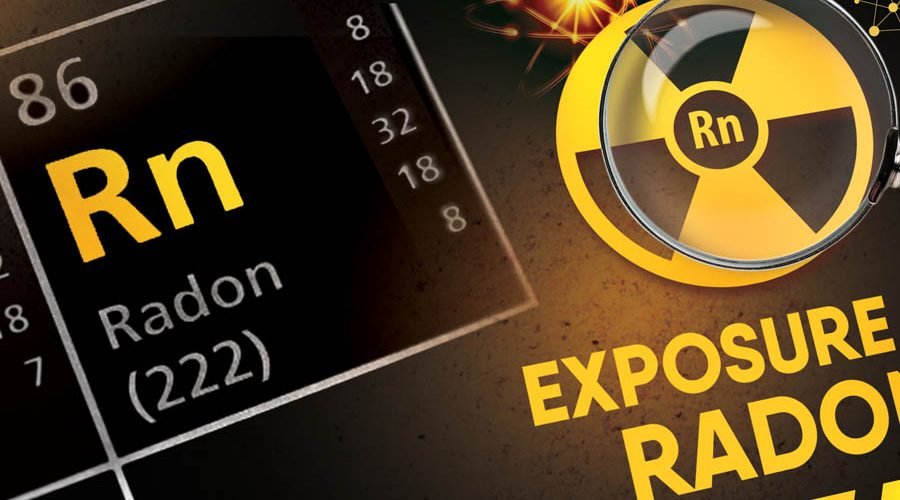Radon is one of the numerous, naturally-occurring gases that many people don’t know about. While its presence in minute amounts is harmless, it can cause some serious diseases after prolonged exposure. That’s why it’s advisable to check radon mitigation in Louisville, KY, now and then. This ensures that your home is inspected for radon amounts and that the necessary mitigation steps are taken.
Lung cancer is one of the prominent diseases that can result from significant radon exposure. Seeking medical attention after radon exposure is one way to help address the problem. Given that trace amounts of radon are virtually harmless, do you need to see your doctor immediately?
Table of Contents
What is Radon?
Radon is one of many inert gases. This means that it does not readily react chemically with other substances. It is tasteless and without any distinct smell. While it can be produced in the laboratory, radon occurs naturally as a result of certain processes.
Typically, some other chemical elements are responsible for its production. Prominent among such elements are uranium and thorium. Both are radioactive substances. Radioactive substances undergo decaying as part of their natural existence. This is when they are chemically altered to produce other substances.
Radon is produced as a gas when uranium and thorium decay in rocks, soil, and water. Depending on the concentrations of thorium and uranium in a particular place, radon may pose a health risk.
A significant amount of the radon produced accumulates in the air. This is when it usually becomes a health risk to individuals who inhale it. Even in well-built homes, radon can find its way into the house through cracks, crawl spaces, construction joints, or any other entry point.
How Does Radon Pose a Health Risk?
Being radioactive, radon can cause several health issues, many of which can become life-threatening.
The human body is made up of cells, each containing crucial genetic material known as deoxyribonucleic acid (DNA). DNA is a key control mechanism for virtually all of a cell’s functions, including replication. For a cell to replicate successfully to produce other healthy cells, the strands within the DNA have to be replicated without any damage. Radioactive materials, like radon, emit high-energy radiation like gamma rays. These radiations are responsible for causing breaks in DNA structure. Among the many consequences of the disruption of a normal DNA structure is a cancerous growth.
This is one of the major ways in which radon poses a health risk.
Testing for Radon at Your Home
Given the potential health risks caused by exposure, monitoring radon levels in your home is important. A good way to do this is by hiring a radon mitigation company. These are professionals that are certified to identify and calibrate radon levels.
The radon mitigation company will typically install a system at your house to help eliminate this gas from the air. This will involve a ventilation system designed to do just that given that poor ventilation is one of the reasons for radon gas accumulation.
There are now test kits available for determining radon levels in a home. You can use one of these to monitor radon levels from time to time.
Should You See a Doctor If Your House Has Elevated Radon Levels?
Trace amounts of radon don’t cause health problems, at least initially. However, repeated exposure to these minute amounts over a prolonged period can result in health complications.
That’s why it’s always advisable to see a doctor if radon levels are detected at your house. This is because you could have been exposed to it for a long time without knowing.
Radon is responsible for causing lung cancer in scores of individuals. This disease can be asymptomatic in many individuals even when at an advanced stage. It may only give a few physical indications. These physical signs could include:
i)Changes in fingertip shape ( finger clubbing)
- ii) Swollen lymph nodes around the neck and the chest area (lymphadenopathy)
iii) Unrelenting cough that cannot be attributed to any obvious disease
Only a doctor can get to the bottom of such signs and come up with a diagnosis of lung cancer due to radon exposure.
Always see a doctor if you suspect you’ve been exposed to radon. Similarly, you should also see a doctor if you live in an environment that increases your risk of radon exposure. For instance, studies indicate that places with colder climates experience more radon release from water and soil compared to hot regions. As such, individuals in cold regions should see their doctors more often to test for radon-related health issues.
Ultimately, it’s best to err on the side of caution. There is no documented safe level of radon exposure. That’s why seeing a doctor after every potential exposure is advisable





